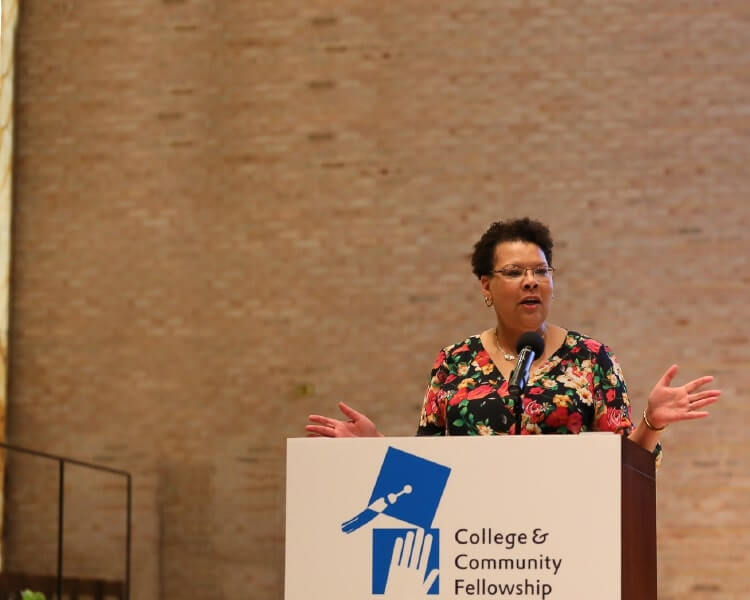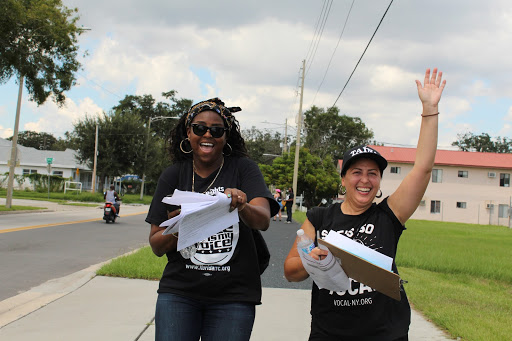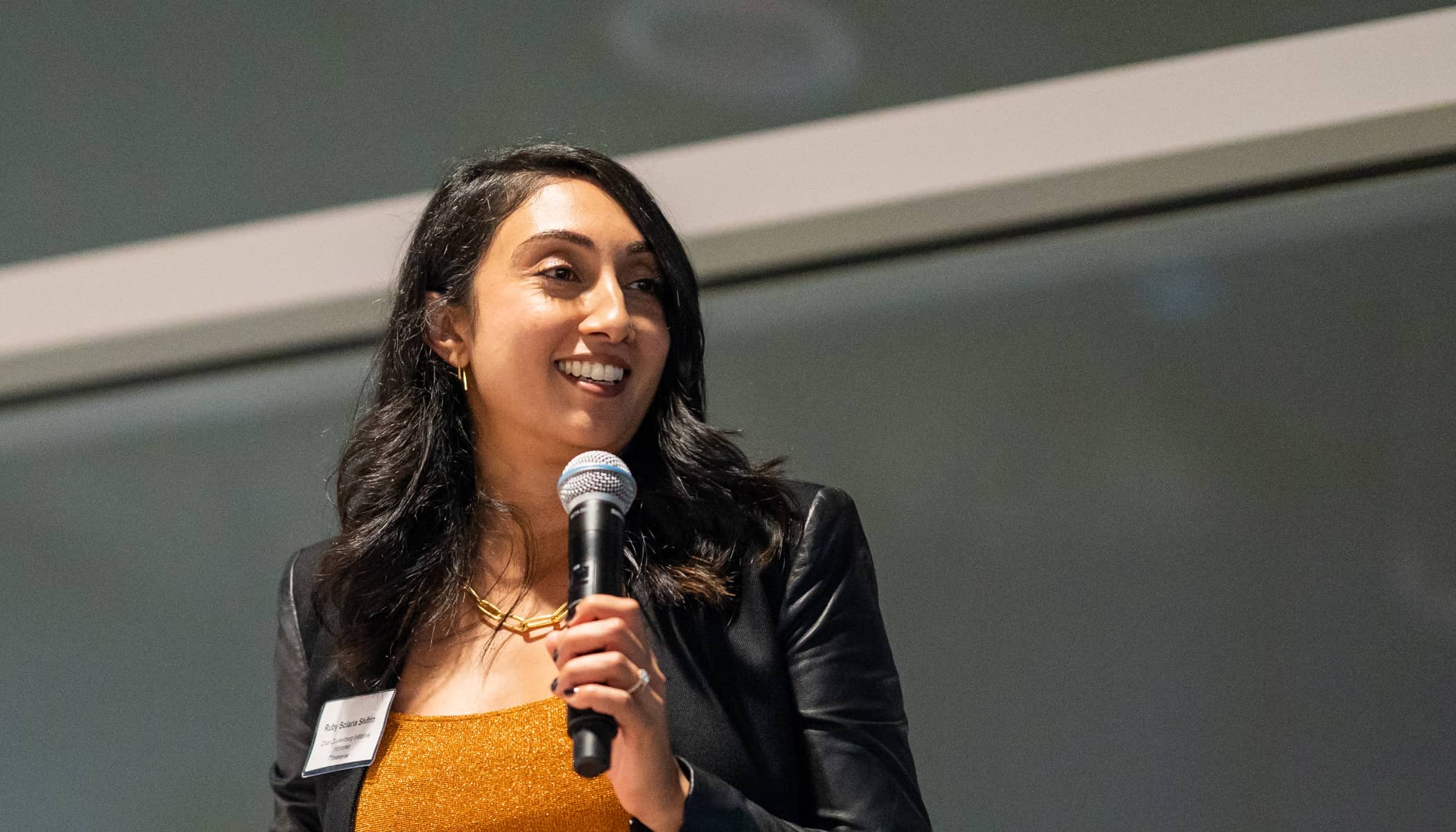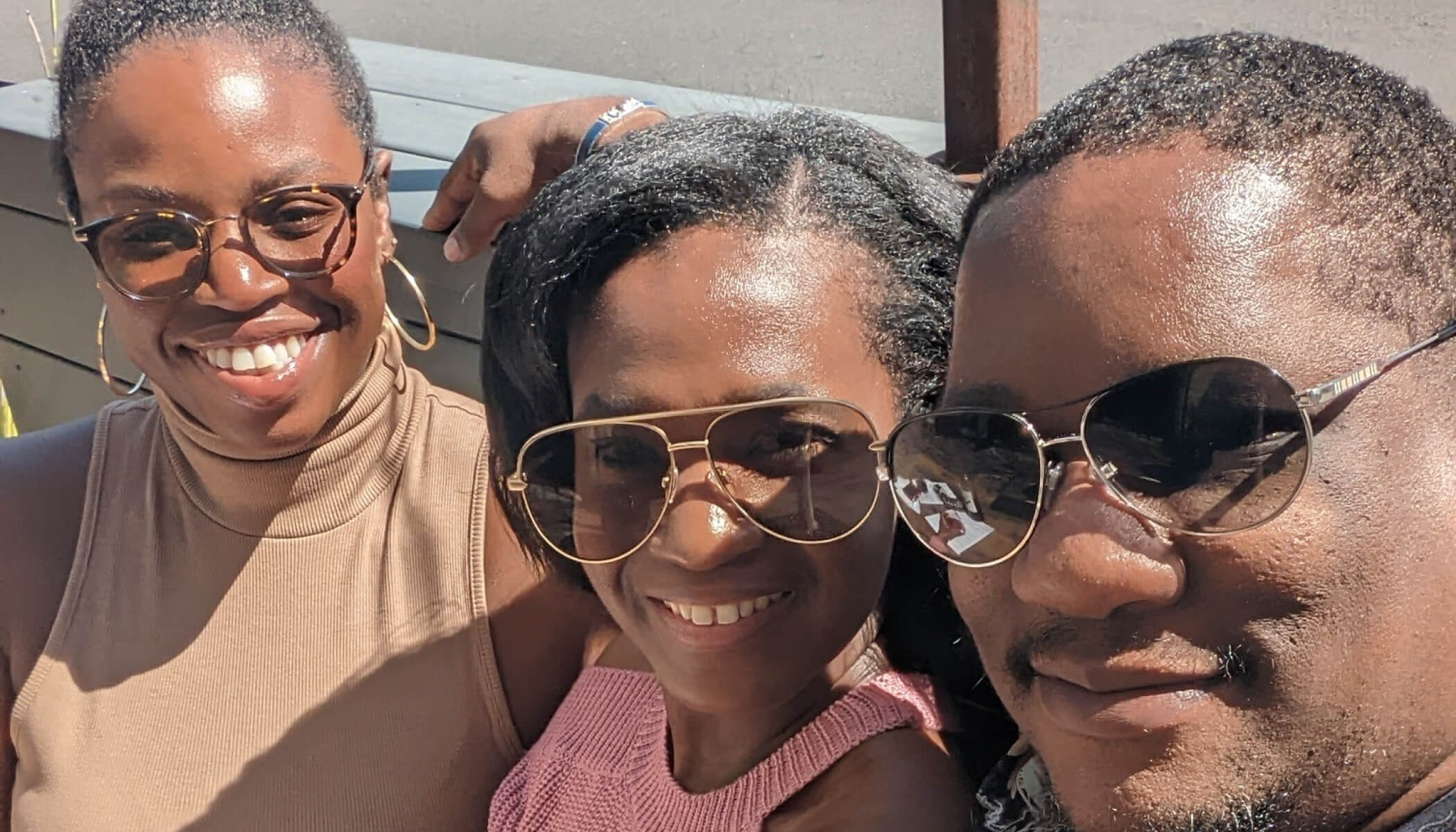Apr 30, 2019 · 10 min read
Behind the Movement with Vivian Nixon

Progress on many of the world’s most pressing issues is driven by fearless leaders who stand with their communities and build movements that effect change. This series highlights those courageous and innovative people on the frontlines and their bold missions to create a more equitable and inclusive future for all.
Meet Vivian Nixon.
Vivian Nixon has always seen challenges and hardships as opportunities. Thoughtful, strategic, and fiercely committed, she’s a true advocate for incarcerated and formerly incarcerated women. In fact, she recalls countless experiences where she was often one of only two women in rooms full of men rallying for criminal justice reform.
Vivian and the College & Community Fellowship (CCF) have lofty goals like enabling more impacted women to earn their college degrees so that they and their families can thrive. Together with the organization, she won’t give up until those goals are met or exceeded. CCF was founded in 2001 by Barbara Martinsons. Vivian joined as a student in 2001 and became executive director in 2006.
CCF’s college program focuses on education, building social capital, and community. The organization believes that their fellows are their own best resources and education has the power to transform how we see ourselves and our relationship to the world. CCF’s success speaks for itself. Their cohort graduation rate is 93 percent, their recidivism rate is less than 6 percent, and students have received more than 330 degrees, including a JD, PhD, and MD, since their founding.
Describe the people who are on the frontlines alongside of you. Why do they join the movement?
I have seen so many powerful people rising up in the years I’ve been doing this work.
The women have a particular bond because we are a very small population of the people in prison. If you look at the numbers, it’s mostly men who go to prison, but it’s often women who shoulder the burden of men’s incarceration back home — taking care of families, making ends meet, making sure kids are visiting their dads in prison. Women’s voices have often been muted out, so it takes a strong woman to stand up and say, “No, our voices matter; not only because we are impacted, but we are more vulnerable in prisons in ways that you cannot imagine.”
There’s a whole cadre of women who are standing up to lead, and it’s a beautiful thing to see.
Over the last 30 years, the increase of women’s incarceration has caused us to want to have a loud voice within the movement. There’s a whole cadre of women who are standing up to lead, and it’s a beautiful thing to see. It makes me believe that retirement is possible. [laughs]
How did your experience with incarceration inspire you to join College & Community Fellowship and fight for the rights of incarcerated and formerly incarcerated women?
Well, it certainly wasn’t by choice [laughs]. I grew up in a fairly stable lower-middle-class home on Long Island [New York]. A series of very complicated social constructions led me into prison from 1997 until 2001. While I was in prison, I became starkly and shockingly aware of the numbers of people that were being funneled into prisons because they were poor, under-educated, or people of color.
I felt I had a great deal of privilege that I needed to take responsibility for, because I had grown up in a community where the school system was actually excellent. While I was in prison, I worked as a tutor in the adult education program and also volunteered to help women write letters to lawyers and grievances when they were mistreated.
I received a flyer about the College & Community Fellowship organization and thought, “Wow, that’s different.” Everything else I had seen helped you get a job, housing, or substance abuse treatment. All absolutely necessary, but to me, a college education just drew me in. I went to the organization. I signed up. I got a mentor. I got tutored. And I got a degree in nonprofit administration. Right after I graduated, they hired me to work there.

Incarcerated and formerly incarcerated women have long suffered from inequalities within the criminal justice system. You see that fight every day, so what exactly does it look like?
While I was incarcerated, I noticed that no one had ever told these women how much potential they had or how smart they were.
While I was incarcerated, I noticed that no one had ever told these women how much potential they had or how smart they were. I also noticed there were women as young as age 17 and as old as age 70 who had no support from the outside. On visiting days, many of them sat in their housing units waiting for visitors that never came.
The stigma is different for women. Women are identified as bad mothers and as people draining the welfare system. Women who are in prison are very likely to be part of households where they’re not the first person to ever go to prison. Many times they’ve been supporting male members of their families who have been incarcerated. And so when they get out of prison, they have the added responsibility of rebuilding the household, getting their children out of foster care, and supporting male members of the family who may still be incarcerated. The layers and layers of responsibility placed upon the women we work with are very deep.
What drives your passion to seek real, long-lasting change?
That’s a powerful question because it doesn’t have just one answer. If I had to give one answer, it would be that I feel responsible. While I did not have a perfect upbringing, I did have a lot of opportunity. Part of it was just being a teenager, but I feel like I blew it, and therefore I am responsible to use whatever privilege or advantage I have to make sure that other women understand the potential of their capacity.
While I did not have a perfect upbringing, I did have a lot of opportunity.
If you can picture a world where incarcerated and formerly incarcerated women have more opportunities, what does that world look like to you and CCF?
It looks like reinventing the possibility of going back to a dream or a vision or a life that these women envisioned before they were put aside in a box as a marginalized population. In a perfect world, for me, that box would not exist.
Challenges are to be expected in your line of work. What motivates you to keep going when you feel like giving up?
We have a ceremony in June to celebrate every woman graduating with a college degree from their educational institution. And somebody tells a story that moves me beyond the fatigue.
We give graduates a crystal globe, which represents that the whole world has opened up for them. They usually bring their families, and their kids look up at them on that stage and say, “That’s my mother.” That’s what fuels me, because I know her life is changed forever.
As far as I know, when one is convicted of a crime, whether they are guilty or not, they do not cease to be human, and they do not cease to be a citizen. And that is the message I think we want to give America.
Think back to when you first started doing advocacy work. How has the landscape and experience changed between then and now?
I’ve studied movements over history, and women have primarily been leaders, especially in the black church and in black civil rights movements. But they were leaders who were treated more like helpers; like they were there to support the big movements that the men were running.
Today, there are groups of women, formerly incarcerated women, and women with incarcerated husbands, children, brothers, and cousins who have always been the helpers and the caretakers of movements. Some of us are brave, and we don’t want to be helpers anymore. We want to be leaders.
The symbolism of this convening says to the world that there are millions of people in America who have been impacted by our criminal justice system, either because they’ve been arrested, convicted, incarcerated, or all of the above. As far as I know, when one is convicted of a crime, whether they are guilty or not, they do not cease to be human, and they do not cease to be a citizen. And that is the message I think we want to give America.

What does the next stage of movement and capacity building look like for you and CCF?
My hope is that we’re able to build the infrastructure to support the many sub-movements involved in the overall movement. There are 70 million people who have criminal convictions. That touches almost every household in America in some way, so we need to build a support system that can provide information and resources to people who are working at the state level and at the local level to get their stakeholders to understand why change is needed.
In the longer term, I hope that we develop not only a movement to change the face of criminal justice in America but to inspire people in the most marginalized communities to use their power. Whether it’s their political power or their community-based power, to influence elections, influence propositions across the country, and to exercise the inalienable right that we have as American citizens to choose who represents us at every level — be it city council, Congress, or the White House.
The work you’re doing is demanding, no doubt, so it’s important to take time and celebrate the victories. Any recent wins that you’re particularly proud of?
In the last few years, we’ve expanded the services we offer to women. We’re not just tutoring and mentoring them through their educational processes, we’re providing career development opportunities and training on how to be civically engaged as an advocate in their communities.
We’ve also been able to codify and build a curriculum around our trauma-informed approach to working with people coming out of the criminal justice system as it regards access to housing, jobs, and education. We’re transporting those values in the form of a technical assistance program in multiple states around the country.
And we’re very close to getting bipartisan support to return Pell Grant eligibility to incarcerated students. So, if they have aspirations to go to college, they won’t have to wait until they get out. They can actually start that process on the inside, which, up until 1994, was common practice. I’ve been working on this for 15 years, and we’ve never had bipartisan sponsorship until now. They’re already talking about scheduling hearings, and that’s never happened before.
I’m more hopeful now than I’ve been in my entire career.





